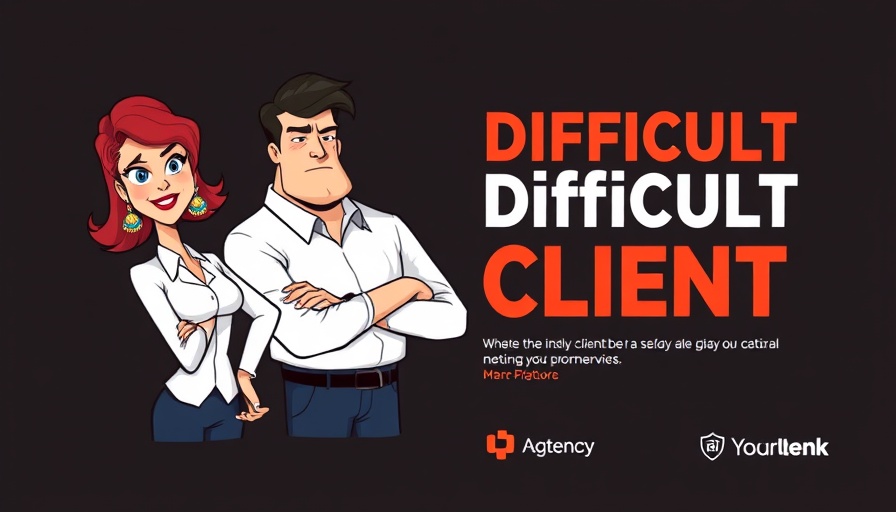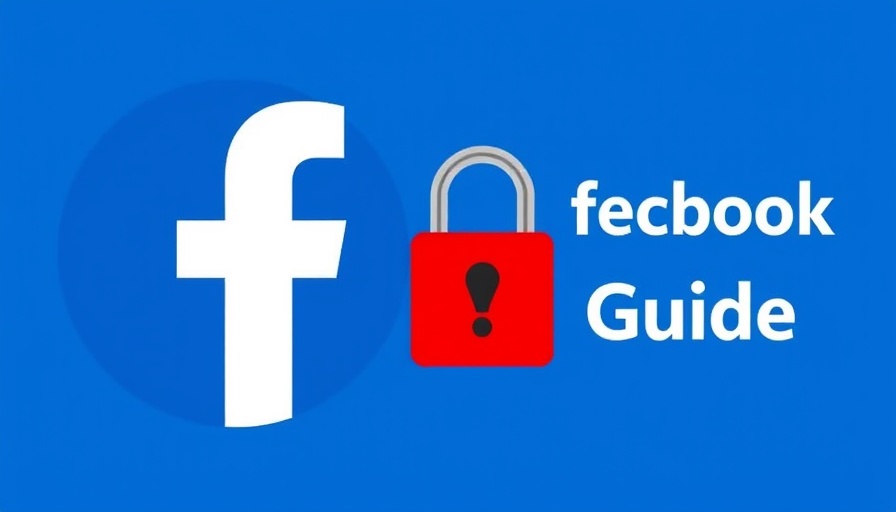
Understanding Toxic Client Relationships in Marketing
In the world of marketing agencies, client relationships mirror romantic entanglements, highlighting trust and growth or, in many cases, upheaval and disappointment. It is crucial for marketing professionals to recognize the different types of clients they may encounter, much like varying personalities in relationships. This insight can lead to healthier business dynamics if clients who are detrimental to agency morale are identified and tactfully let go.
Types of Clients That Agencies Need to Break Up With
Avoiding toxic clients is essential for flourishing in the marketing industry. Here are some prevalent client types that can be detrimental to agency success:
The Abusive Client
This client is a constant source of stress and negative energy. They rarely acknowledge good work and instead focus on minute errors, leaving the agency team in a perpetual state of anxiety. Rather than fostering collaboration, they create an environment of dread. Recognizing the detrimental impact of such clients is the first step in safeguarding your team’s well-being and morale.
The Cheating Client
Clients who play the field create uncertainty — they profess loyalty while simultaneously exploring options with other agencies. This is reminiscent of a partner who’s simultaneously swiping on dating apps. Agencies must establish boundaries and ensure clients know their expectations regarding loyalty and transparency, which can deepen trust and reliability.
The Hoarding Client
These clients seem to operate under an illusion of scarcity when it comes to budgets, even as they engage in lavish spending with other vendors. This inconsistency leads to frustration among your team; after all, how can you deliver quality results when your budget is constrained? Understanding the importance of equitable investments in marketing will enable agencies to make informed decisions about client commitments.
The Immature Client
Much like a temperamental teenager, these clients might lash out at constructive feedback. They often demonstrate a lack of willingness to adjust their strategies or grow, resulting in unproductive interactions and stalled projects. As agencies, it’s essential to recognize when a lack of maturity disappears from the relationship landscape and consider moving on.
The Lazy Client
Some clients prefer a passive role, thinking that just by hiring an agency, they’ve done their part. They may ghost emails or neglect their responsibilities, relying on the agency to fix problems in their absence. An effective partnership necessitates active participation — and recognizing clients who will not engage is vital for long-term success.
Rethinking Client Relationships: Lessons for Business Owners
The dynamics between an agency and its clients often reflect larger business relationships, a reminder that a successful partnership requires effort from both sides. For business owners eager to level up their company, here are some strategies to consider:
Set Clear Boundaries and Expectations
Establishing strong communication channels ensures all parties understand their roles and responsibilities. By laying down clear guidelines at the outset, business owners can foster accountability and cultivate a more respectful atmosphere.
Assess Client Potential
Taking the time to evaluate whether a client aligns with your brand and values can save significant headaches in the long run. This reflective process allows businesses to pick clients that encourage mutual growth rather than affliction.
Know When to Move On
Just as in any relationship, knowing when to end a partnership is critical. Embrace the idea that not every client is meant to stick around. Developing the courage to let go of toxic relationships will empower agencies and lead to a healthier work environment.
Actionable Insights and Practical Steps
The journey through the world of client management need not be daunting. Here are some practical insights to create a constructive approach in maintaining healthier professional relationships:
- Regular Client Check-Ins: Schedule periodic reviews to discuss successes, improvements, and future goals. Maintaining open communication helps reinforce the partnership.
- Feedback Loops: Encourage honest feedback from clients. This exchange should also include rule-setting on timeliness and responsiveness, establishing expectations on both sides.
- Continuous Learning: Attend workshops on client relationship management or invest in CRM software to streamline communication. Knowing how to leverage technology can enhance interactions.
Conclusion: The Path to Growth
Looking at client relationships from the lens of personal connections reveals much about human nature and interactions. Recognizing the characteristics of toxic clients, setting boundaries, and embracing a proactive stance in communication can transform an agency’s approach. As difficult as the decision may be, breaking up with unhealthy clients can pave the way for thriving, more fulfilling partnerships. Take the necessary steps now to ensure that your agency is set for growth and resilience.
 Add Row
Add Row  Add
Add 




Write A Comment